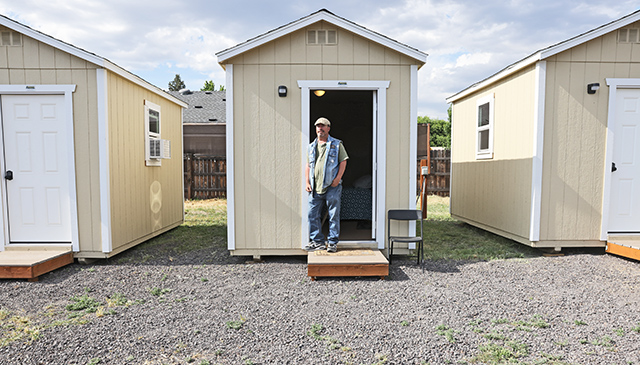Oregon home health care registry may open
Published 12:00 am Friday, March 14, 2014
A plan to give the public access to Oregon’s state-maintained home care worker registry has its supporters excited and its detractors — namely those who run private home care agencies — worried it might put seniors and people with disabilities at risk.
Sponsored by state Sen. Elaine Rosenbaum, D-Portland, Senate Bill 1542 would let private payers use the Oregon Home Care Commission’s Registry and Referral System to find a qualified home care worker to take care of themselves or their loved ones.
Currently, only people who qualify for a state-supported home care worker through Oregon’s Medicaid program or Oregon Project Independence — both of which are geared toward low-income residents — can use this registry.
Meghan Moyer, senior political adviser for SEIU 503, the union that represents state-supported home care workers, said a lot of people are put in a difficult situation when they’re trying to find someone who will work in their homes.
“Some people have been forced to look for help on Craigslist or bulletin boards,” Moyer said, explaining that people who go this route have no way of telling whether a prospective employee has a criminal record or knows how to properly tend to their needs.
She said the state’s registry — which Local 503 helped the commission create when it started representing state-supported home care workers in 2000 — solves this problem because anyone featured on it must fulfill minimum qualifications that include passing a criminal background check and attending a commission-managed home care worker orientation and training session.
Moyer said clients who hire a home care worker from the registry also benefit because the home care commission serves as the worker’s employer of record and is responsible for filing care workers’ withholding and payroll taxes, paying for worker’s compensation coverage and performing other time-consuming administrative tasks that clients would normally have to do themselves.
But Nancy Webre, who runs Bend’s Evergreen In-Home Care Services, stressed that while the state performs these tasks for the home care workers who are featured on its registry, it does very little when it comes to making sure its “employees” do quality work.
“There’s no oversight for these workers,” Webre said as she explained the difference between hiring a home care worker through an agency like hers and using the state’s registry.
She said clients who hire through the registry are left to their own devices when it comes to checking a prospective employee’s references and making sure there’s a back-up plan in case their home care worker gets sick or simply does not show up to work. Webre’s agency provides all of these services.
“My biggest concern is patient safety and the quality of care they would receive,” said Webre, who joined several of her colleagues in fighting against Rosenbaum’s proposal. Because of her work, she said, Sen. Tim Knopp, R-Bend, joined Reps. Jason Conger, R-Bend, and Gene Whisnant, R-Sunriver, in voting against the bill this past session.
But these objections weren’t enough to slow Rosenbaum’s proposal down, and after passing both houses of the Legislature this month, the bill is now on its way to Gov. John Kitzhaber for his signature.
Moyer said people will be able to start using the registry in July 2015 if the proposal clears this final hurdle. But she said some people would continue to use private agencies to find their home care workers as well.
“For some people, (hiring through an agency) is great and that’s what they want to do,” Moyer said when she heard Weber’s objections to opening the home care worker registry to the general public.
But she stressed that a lot of people, particularly those who live in rural parts of the state, may not have access to an agency like Webre’s or may be unable to afford the services it provides.
She said other clients may be drawn to the registry because they want to personally supervise the people who care for them or their loved ones without dealing with an agency.
“It’s simply two models of care,” she said, adding there’s no reason the two models of care can’t exist side by side.
— Reporter: 541-617-7816, mmclean@bendbulletin.com






